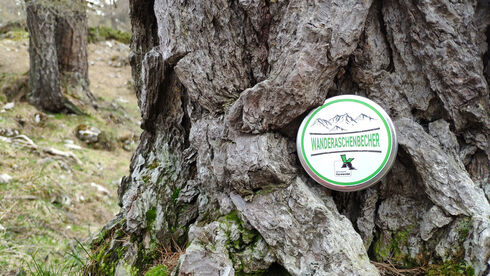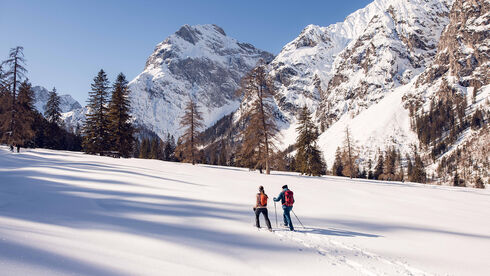Staying safe in a lightning storm at Lake Achensee
Lightning storms are among the biggest dangers in the Alps in summer, both in the mountains and on the lake. In addition to the risks of cold and wet conditions, which can lead to hypothermia and slipping, there's also a serious threat from lightning. To stay safe during thunderstorms, it's important to plan your activities carefully. Start early in the day and aim to finish your outing before any potential thunderstorms develop. Often, weather changes are first noticed when strong winds start blowing, followed by stormy or rainy conditions. If you're on or in the lake at this time, you could be in serious danger. Therefore, it's crucial to recognize the early signs of changing weather and take appropriate action.
What are the signs of thunderstorms & imminent lightning danger?
- Thunderstorms: If you hear thunder less than 10 seconds after seeing lightning, it means the storm is close. In this situation, it's important to stay indoors and avoid being on or near water.
- Imminent lightning danger: Be alert for tingling sensations on your scalp, hair standing on end, a whirring noise from metal objects, faint crackling sounds, and a bluish glow around prominent metal objects (e.g. summit crosses, etc).
- Plan ahead for your water activities: Check the weather and wind conditions in our weather forecast on achensee.com before heading out for swimming or water sports.
- Take weather & wind warnings seriously: Pay attention to weather updates and leave the water immediately if conditions start to deteriorate. This applies to swimmers, SUP paddlers, kite surfers, and all other lake users.
- Beware of strong winds: Strong winds can be very dangerous. Don't underestimate them - end your activity early if necessary.
- Start early: In summer, start your hikes and mountain tours early in the day, as thunderstorms are more likely to occur in the afternoon.
- Watch the weather: Keep an eye on the clouds and take any signs of changing weather seriously.
- Use weather services: Mountain weather services and our weather forecast on achensee.com are great resources for planning your trips.
- Prefer morning tours: If thunderstorms are expected later in the day, plan your mountain tours for the morning.
- Avoid frontal thunderstorms: Stay away from the mountains when there's a risk of frontal thunderstorms or cold fronts.
- Move quickly away from exposed ridges, summit crosses, isolated trees, groups of trees, forest edges with tall trees, and rock towers.
- Stay away from steel cables, climbing walls, streams, and mountain lakes during storms. If possible, take shelter in larger rock caves, but stay at least 1.5 metres away from the rock face.
- Crouch down with your feet close together and stand on your rucksack or rope (for insulation) to avoid step voltage. Stay in this position until the storm passes.
- In areas where there is a risk of falling, always take appropriate safety measures to protect yourself from falling.
- Use a bivouac sack and wear functional clothing to stay dry and warm.
- Find safe shelter: Huts, houses with lightning conductors, hollows, or dense woods offer good protection from lightning.
- If you're in a group, spread out to avoid being a single, high target.
In case of an emergency
- Emergency numbers: 144 (ambulance), 140 (emergency number for alpine accidents in Austria), 112 (European emergency number)
- Emergency app „SOS EU Alp“: This app shares your GPS coordinates with local emergency response teams, reducing the time between alert and rescue considerably. The app is a valuable addition to the official alpine emergency number 140.



